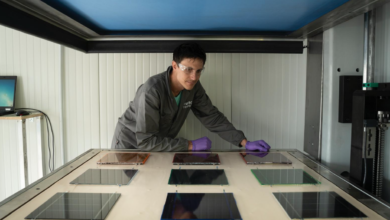Photovoltaic batteries, how to integrate generation and storage in a device
Photovoltaic batteries, where are we?
(Sustainabilityenvironment.com) – Photovoltaic batteries are able to combine electricity production and electrochemical accumulation in one device. This is one of the new research objectives in the world of rechargeables. In the past attempts to simplify energy conversion and storage had given rise to complicated devices, the cost and efficiency of which left much to be desired. However, the progress made in recent years in the field of batteries has opened up new possibilities, as the authors of an international study now explain. The work has seen the collaboration of researchers from Chinese, Australian and Japanese universities. Together the experts have studied the progress made by the rechargeable metal batteries, and photo enhanced systems that integrate photovoltaic cells directly in high-density storage devices.
“The amount of solar energy received on the Earth’s surface would completely meet annual global electricity demand,” said Hairong Xue, a professor at the National Institute for Materials Science in Tsukuba, Japan. “However, like wind energy, solar energy is intermittent. To balance supply and demand, it must be stored in storage devices. Therefore, it is imperative to incorporate solar cells in appropriate energy storage technologies“.
Read also Almost invisible solar cell arrives from Tohoku University
The document summarizes the progress in the use of six different types of photovoltaic batteries, ie enhanced metal units with the inclusion of a photocathode: lithium ions, zinc ions, lithium-sulfur, iodine-lithium, iodine-zinc, oxygen-lithium, oxygen-zinc and CO2-lithium. The authors describe in detail the advantages and disadvantages of each type of device and how it can be applied to the conversion of solar energy into electricity. For example, the researchers write, lithium-ion rechargeable batteries – today the most common storage technology – although the most efficient would be very difficult to scale for integrated use with solar cells. The work was published in Nano Research Energy.






